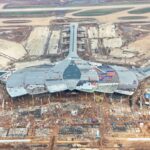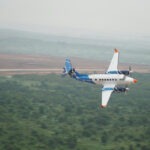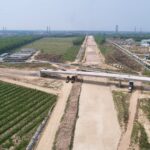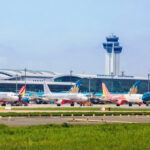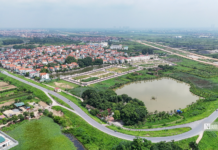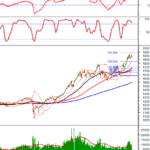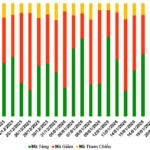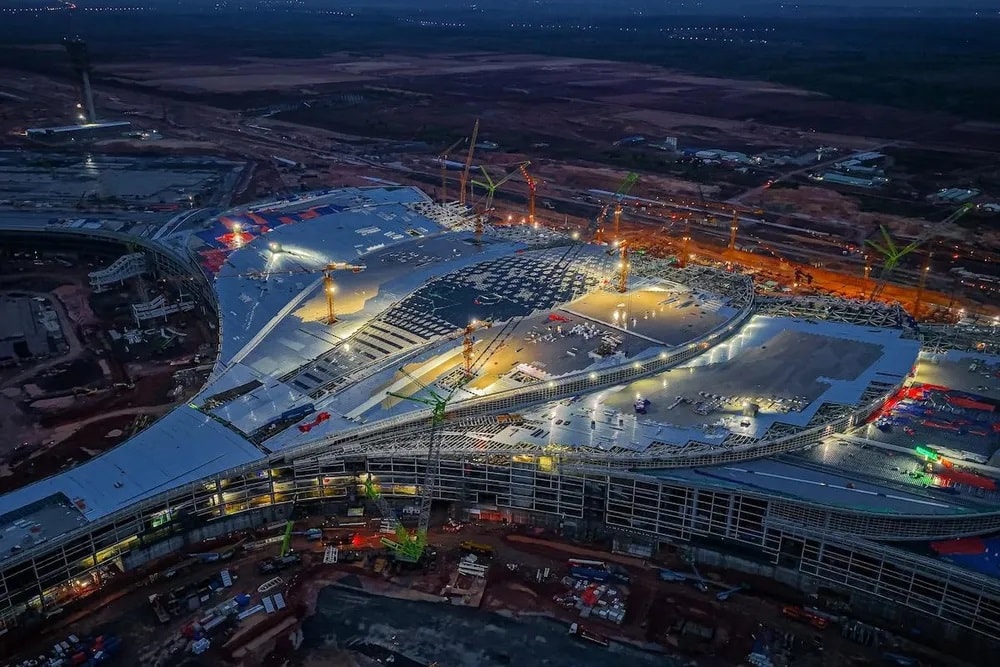
Despite unfavorable weather conditions with heavy rainfall, engineering teams have been working tirelessly to complete the mechanical and electronic installation of the primary and secondary surveillance radar system at Long Thanh International Airport.
The project is now entering the calibration flight phase, a crucial step before official operations commence. Dubbed the “steel eyes” of the airport, this radar system is designed to detect and track multiple airborne targets simultaneously. It is part of Component Project 2, led by the Vietnam Air Traffic Management Corporation (VATM) in collaboration with EASAT Radar Systems Limited.
“This project holds immense significance, as it establishes advanced air traffic management capabilities from the early stages of Long Thanh International Airport,” stated a VATM representative. Once operational, the radar system will expand surveillance coverage and enhance air traffic control within the Ho Chi Minh City Flight Information Region.
EASAT, a renowned radar manufacturer from the United Kingdom, serves as the contractor for supplying and installing the surveillance radar equipment. Leveraging their experience in deploying radar systems at major international airports, EASAT delivers technology solutions that meet ICAO (International Civil Aviation Organization) standards, ensuring maximum accuracy and reliability in Long Thanh Airport’s air surveillance operations.
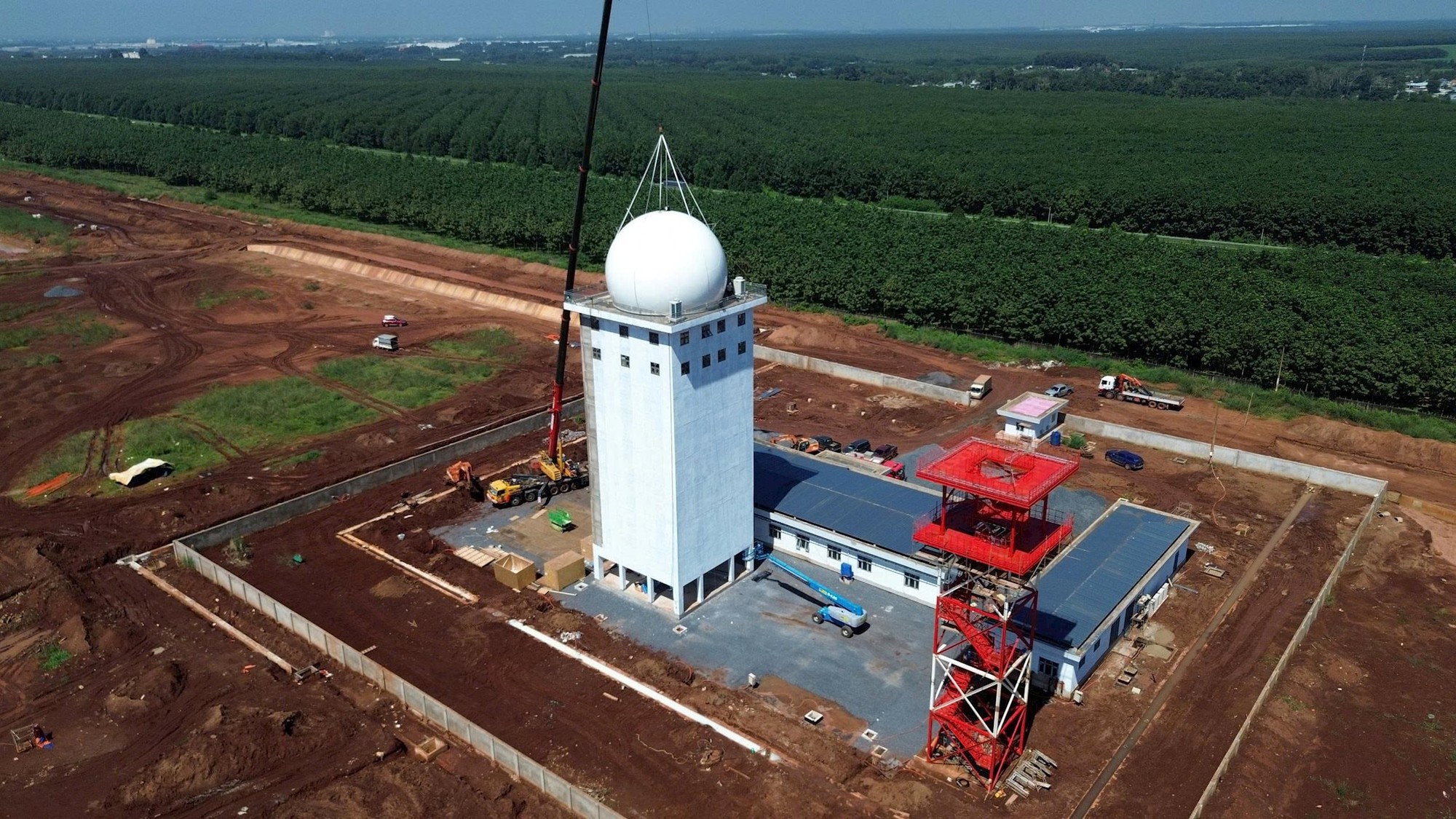
Known as the “steel eyes” of Long Thanh International Airport, the surveillance radar system is tasked with detecting and tracking multiple airborne targets simultaneously.
Located in Long Thanh District, Dong Nai Province, Long Thanh International Airport spans nearly 5,000 hectares with a total investment of $16 billion (over 336.6 trillion VND). Designed to handle 100 million passengers and 25 million tons of cargo annually, it will be Vietnam’s largest and most technologically advanced airport upon completion.
Notably, the airport is designed to meet the international 4F standard, the highest level in ICAO’s classification system. This standard allows the airport to accommodate the world’s largest aircraft, such as the Airbus A380 and Boeing 747-8.
As directed by the Prime Minister, the Long Thanh Airport project remains on track for substantial completion by December 19, 2025. The project has set a record with eight visits from the Prime Minister in three years, the most recent being on August 2.
High-Speed Rail Link: Ho Chi Minh City Proposes Fastest Route Connecting Long Thanh to Tan Son Nhat
The Ho Chi Minh City People’s Committee has submitted a detailed proposal to Prime Minister Pham Minh Chinh and Deputy Prime Minister Tran Hong Ha regarding the development of a rail link connecting Tan Son Nhat and Long Thanh airports. This initiative aims to enhance transportation efficiency and reduce travel time between the two major aviation hubs in the region.
Long Thanh International Airport Set for Second Calibration Flight
On October 25th, the Vietnam Aviation Authority (under the Ministry of Construction) is scheduled to conduct calibration flights for VOR/DME, radar, ADS-B, and traditional VOR/DME flight procedures. This initiative aims to update and enhance the existing flight routes at Long Thanh International Airport.
Dong Nai Chairman Issues Ultimatum on Bien Hoa – Vung Tau Expressway Project
The completion of the Bien Hoa – Vung Tau Expressway marks a significant milestone, showcasing meticulous planning and strategic leadership in infrastructure development. This achievement underscores the successful deployment and coordination of key personnel, ensuring the project’s technical and operational readiness.
Latest Proposal on International Flight Operations at Tan Son Nhat and Long Thanh Airports
Facing mounting pressure from aircraft shortages and disrupted supply chains, Vietnam Airlines proposes a phased transition of international routes from Tan Son Nhat to Long Thanh Airport, rather than an immediate wholesale shift. This approach is seen as a balanced strategy, harmonizing infrastructure planning with the realities of market operations.


